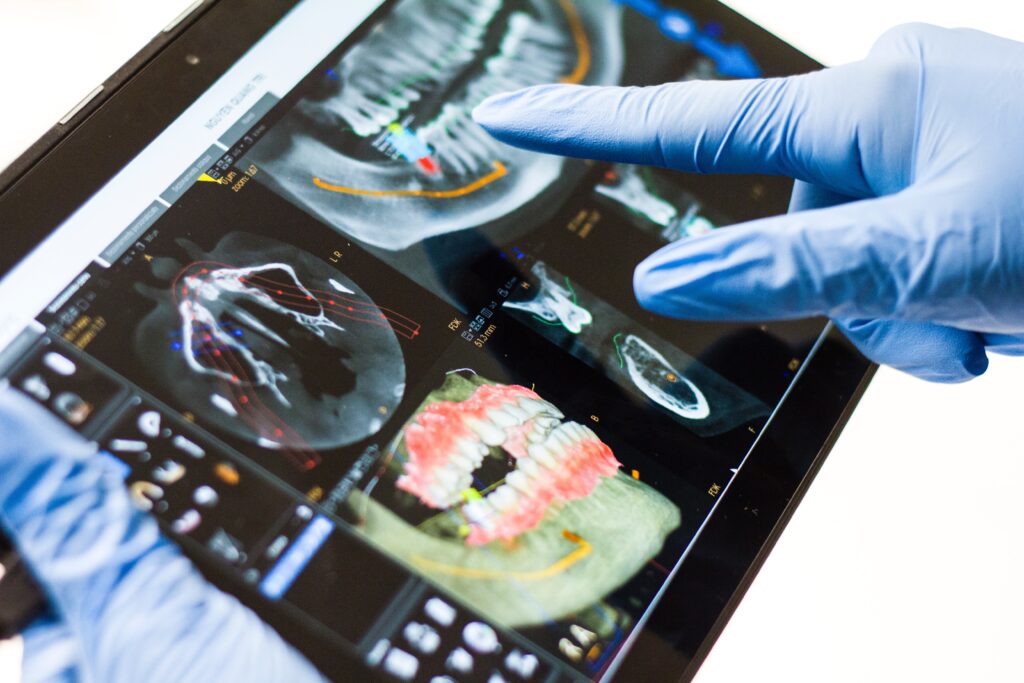Extensive dental care
We listen to the patient's worries and wishes, take X-rays and assess the current condition of the teeth, based on which we draw up a treatment plan according to the patient's wishes
Restaurative dentistry – filling therapy
What is the cause of tooth breakdown and why is it necessary to restore them with fillings? The most common cause is tooth decay and its related complications, followed by dental trauma or replacement of an old filling.
Tooth decay can be diagnosed with X-rays even when the patient does not feel or know that the tooth is decaying. If we find a cavity and treatment is delayed for more than a few weeks, the tooth may begin to ache and thus require more complex and expensive root canal treatment.
Sometimes it is not possible to restore a tooth and the tooth has to be removed and replaced with an artificial tooth or implant. Teeth can be restored with different materials and in different ways, but left untreated, toothache is always the result.
In Estonia, white composite material is used for treating teeth, while amalgam fillings are banned in Estonia.
Root canal treatment
Endodontic treatment or root canal treatment is necessary when there is inflammation in the tooth socket or, more commonly known as the tooth tip. This inflammation can be caused by a number of things: infection from a deep untreated tooth socket, inflammation from dental treatment if the socket is too close to the tooth, a crack in the tooth and fracture of the tooth or root.
If root canal treatment is not carried out in such cases, the inflammation can spread to the jawbone and an abscess can develop.
Symptoms of periodontitis include pain, sensitivity to hot and cold, darkening of the tooth color, a sensation of tooth eruption, pain and swelling in the gum surrounding the tooth. Sometimes there are no symptoms.
Periodontal treatment
If your gums bleed when you brush your teeth, if they are painful and if your mouth smells bad, you are likely to have gingivitis, which can develop into periodontitis if left untreated.
To stop the development of periodontal disease, it is important to have your teeth and gums cleaned daily, have tartar and plaque removed by a dentist or hygienist, have regular check-ups and, if necessary, surgical treatment and antibiotics.

